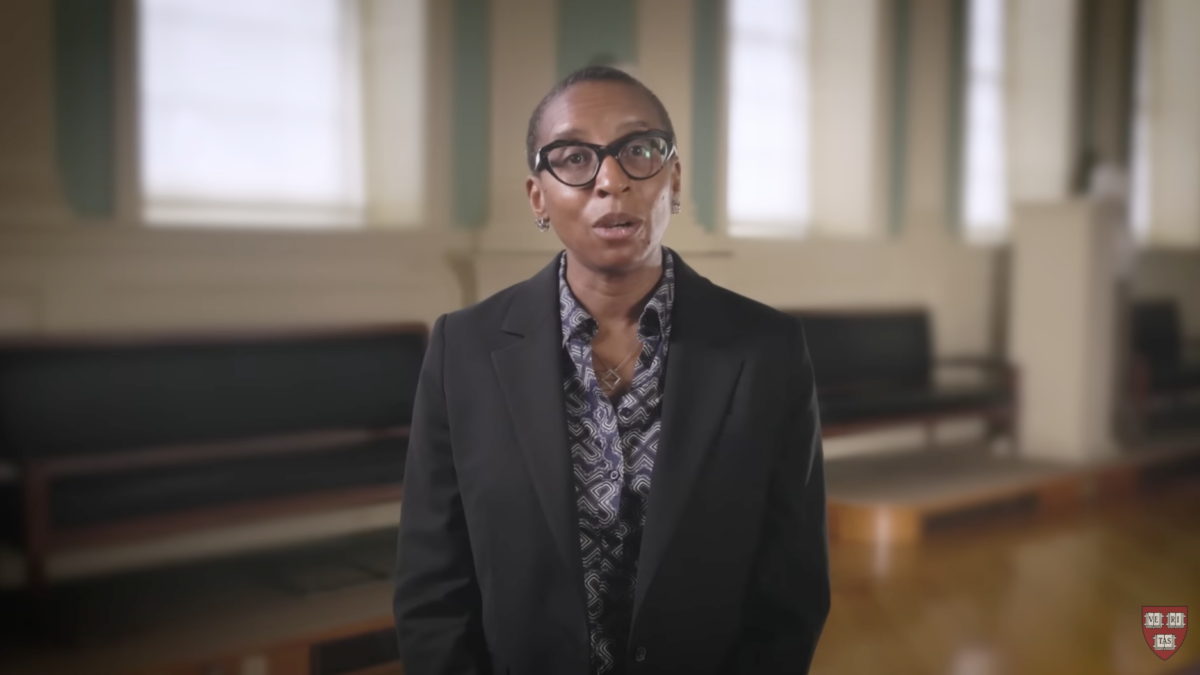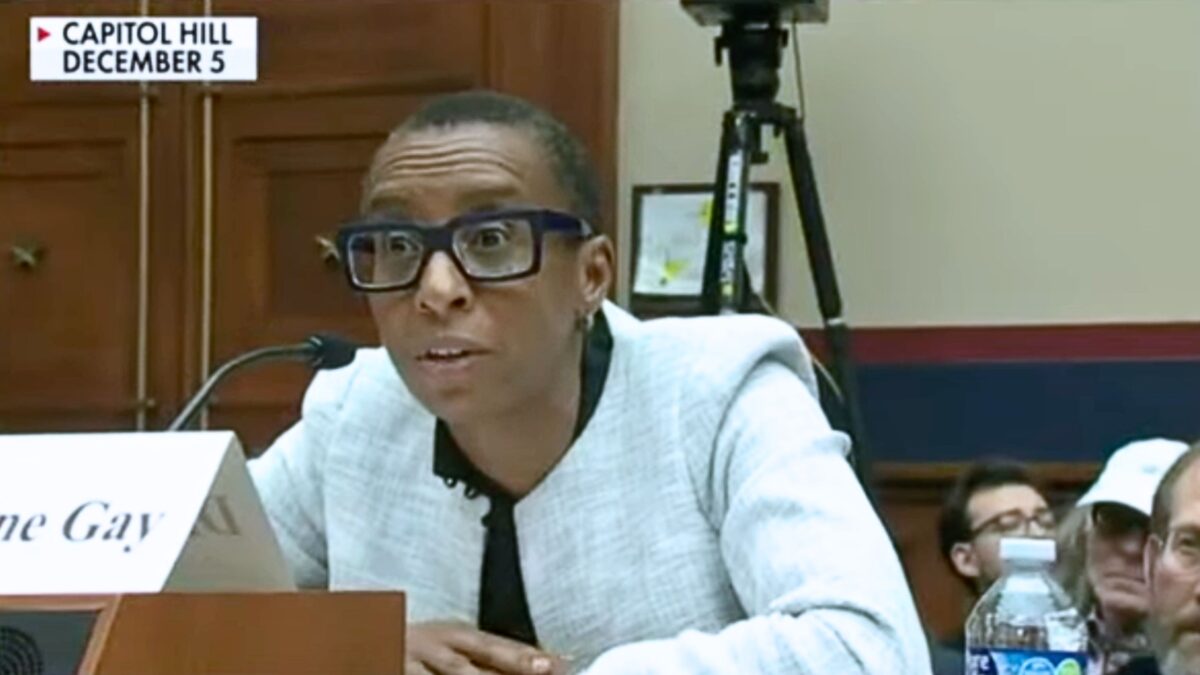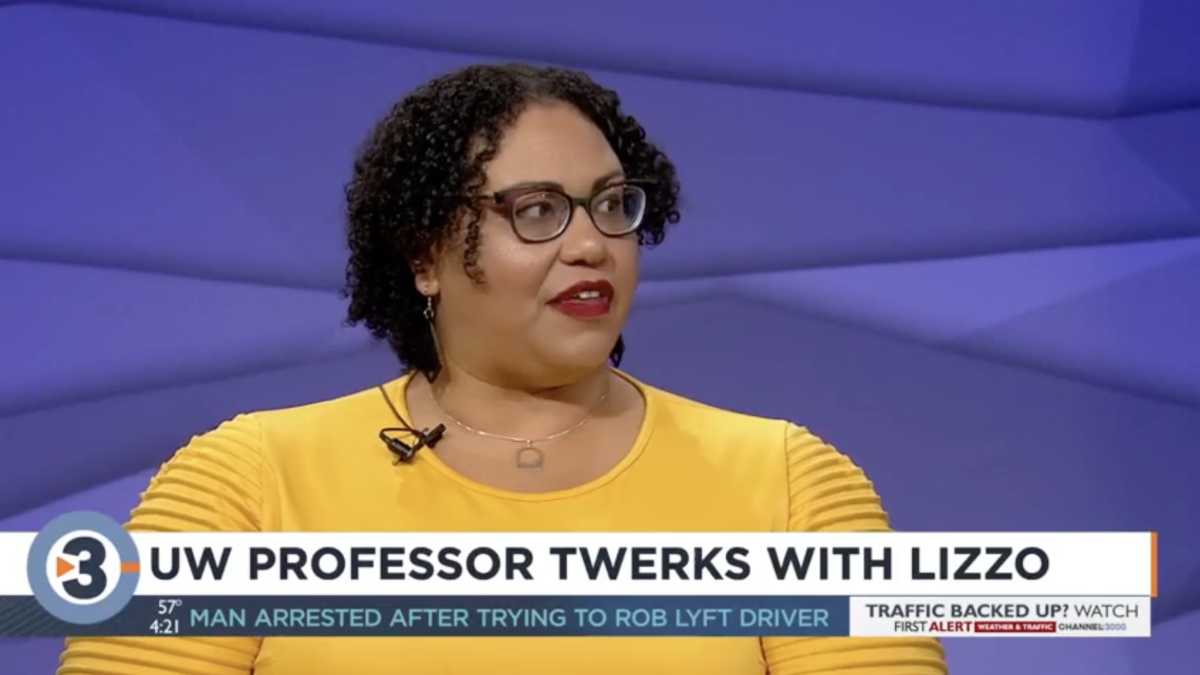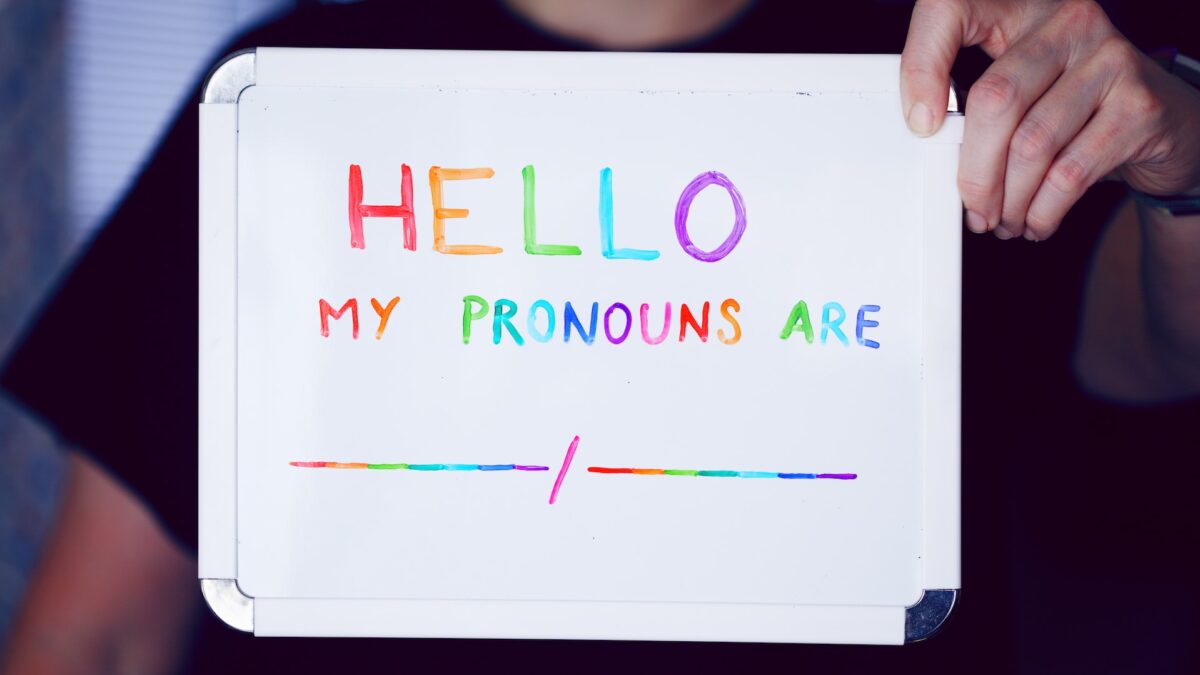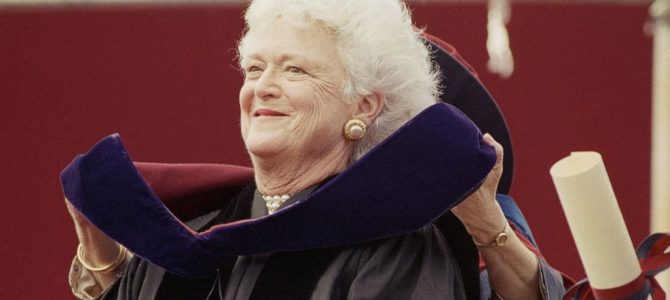
In 1990, First Lady Barbara Bush was invited to Wellesley College to give the commencement address. She was not the student body’s first choice. That honor had gone to Alice Walker, the author of “The Color Purple.” Walker declined the invitation, but Bush was the runner-up on a list populated by powerful women of the time — “novelist Toni Morrison, the actresses Whoopi Goldberg and Glenn Close, the television anchor Connie Chung, the astronaut Sally Ride, Associate Supreme Court Justice Sandra Day O’Connor.”
The New York Times called the invitation of a Republican First Lady to a women’s liberal arts school in Massachusetts, “seemingly harmless.” Those were more innocent days.
As it turned out, the invitation was not to be without controversy. Instead, a group of about 150 students publicly protested the choice, which as the Times reported, “ignited a dispute that has roiled the campus and raised questions around the country about the nature of feminism.”
The students objected to Bush because she was known for her role as a wife and mother instead of her own career, having left Smith College to marry her first love and first kiss, George H.W. Bush in 1945.
“Wellesley teaches that we will be rewarded on the basis of our own merit, not on that of a spouse,” the students said in the petition. “To honor Barbara Bush as a commencement speaker is to honor a woman who has gained recognition through the achievements of her husband, which contravenes what we have been taught over the last four years at Wellesley.”
There’s some irony here given one of the school’s most famous alumnae, but I digress.
President Bush was asked about the controversy by reporters, and stuck up for his wife. “I think these young women can have a lot to learn from Barbara Bush and from her unselfishness and from her advocacy of literacy and of being a good mother and a lot of other things,” he said.
What’s most striking about the controversy, looking back from the vantage point of modern outrage politics, is how mature it was. Protesters were “outraged,” but did not ask for the university to rescind Bush’s invitation.
The college president acknowledged their concerns, coming to the reasonable conclusion that a generation gap and the quickly changing role of women in American society means “[f]eminism is very hard to pin down.” She said the discussion was worth the public dust-up and, notably, never wavered on the invitation to Mrs. Bush.
Bush handled the situation with characteristic grace, even conceding some of the differences she had with Wellesley’s students.
“They’re 21 years old and they’re looking at life from that perspective,” Mrs. Bush said. ”I don’t disagree with what they’re looking at.” But she added: “I don’t think they understand where I’m coming from. I chose to live the life I’ve lived, and I think it’s been a fabulously exciting, interesting, involved life. In my day, they probably would have been considered different. In their day, I’m considered different. Vive la difference.”
And, when she took the stage, Bush talked about just that. She was not interrupted or shouted down or no-platformed. She acknowledged the controversy cheekily — “I thought it was going to be fun — I never dreamed it would be this much fun.” She spoke of embracing diversity, saying it requires “effort to learn about and respect difference, to be compassionate with one another, to cherish our own identity … and to accept unconditionally the same in others.” She talked of having the courage to be a “mermaid,” cutting a different path in a world of “giants, wizards, and dwarves.”
The majority of Wellesley students who didn’t object to Bush got one of the most-often referenced college commencement addresses of a generation. She told them to “believe in something larger than yourself … to get involved in some of the big ideas of our time.” If you hadn’t heard that quote before today, you’ll certainly hear it plenty this week.
She admonished them in a passage made more poignant by her passing hand-in-hand with her husband and surrounded by generations of family: “At the end of your life, you will never regret not having passed one more test, not winning one more verdict or not closing one more deal. You will regret time not spent with a husband, a child, a friend or a parent.”
She was surprisingly — dare I say it? — woke at moments, relaying a story that would find an appreciative audience in many feminist mom circles today and later slyly making reference to a future woman president.
We are in a transitional period right now … fascinating and exhilarating times … learning to adjust to the changes and the choices we … men and women … are facing. As an example, I remember what a friend said, on hearing her husband complain to his buddies that he had to babysit. Quickly setting him straight, my friend told her husband that when it’s your own kids, it’s not called babysitting!
She ended with a lesson all of us would be wise to heed today, both on campus where disinvitations and cancellations have grown precipitously since 1990, and off:
For over 50 years, it was said that the winner of Wellesley’s annual hoop race would be the first to get married. Now they say the winner will be the first to become a C.E.O. Both of those stereotypes show too little tolerance for those who want to know where the mermaids stand. So I want to offer you today a new legend: The winner of the hoop race will be the first to realize her dream … not society’s dreams … her own personal dream. And who knows? Somewhere out in this audience may even be someone who will one day follow in my footsteps, and preside over the White House as the President’s spouse.
I wish him well!
Well, the controversy ends here. But our conversation is only beginning. And a worthwhile conversation it has been.
At a time when too many show “too little tolerance” to have a “worthwhile conversation,” the Wellesley commencement speech of 1990 is instructive. Bush was invited to speak. Protesters had their concerns heard loud and clear. College administrators backed the invitation, valuing free speech over the heckler’s veto. And in the end, Bush was heard, too. Her words have inspired many since then, and should inspire all of us with the possibilities of putting in the effort to be truly tolerant. You never know what you’ll gain.
As the First Lady said, it is worth your while.


